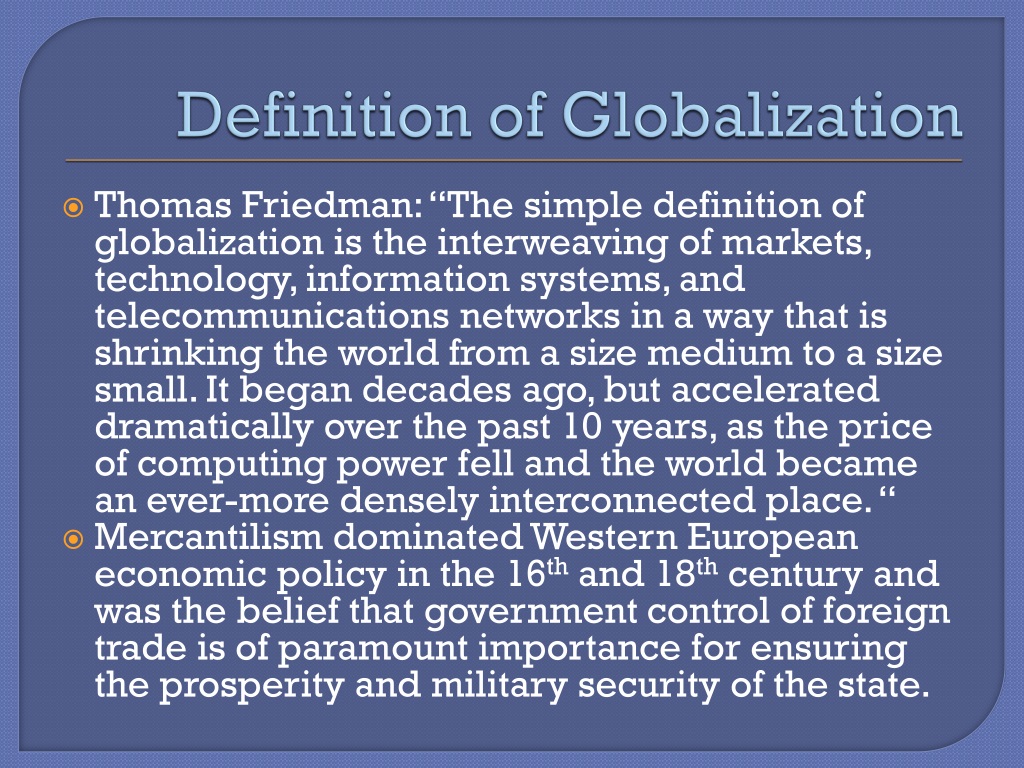The accord creating the W.T.O. is 22,500 pages long — not exactly a free trade agreement. All globalization, it seems, is local, the rules drawn up by, and written to benefit, powerful nations and powerful interests within those nations. Globalization has been good for the United States, but even in this country, the gains go disproportionately to the wealthy and to big business. The World Trade Organization was designed as a meeting place where willing nations could sit in equality and negotiate rules of trade for their mutual advantage, in the service of sustainable international development.
- External diseconomies are costs which are outside the control of a single firm and result of the growth of a specific industry.
- Free trade is more accessible for conglomerates as compared to small business and local buyers.
- Not to be confused with cultural globalization, sociological globalization refers to the idea that we now live in a shared society.
- It is rightly said, «You can not stop the advent of an idea whose time has come».
And in a closed economy, the »state» car factory is often owned by the dictator’s son and the country’s forests can be chopped down by his golf partner. When there is no selection procedure, the introduction of other cultures as a result of globalization has the potential to diminish the culture of local populations. When a country has a good character basis, the selection process should be carried out.
Some people, like Noam Chomsky, do not like globalization because they feel it only helps rich people get richer by making poor people poorer. Offshore outsourcing, where companies hire workers in cheaper countries, is often a part of globalization. Joseph Stiglitz said that international groups like the World Bank and the International Monetary Fund have made it harder for poorer nations to get richer. Globalization also means that globalisation problems from other countries will affect your country. For example the Global Financial Crisis of 2008 started in the United States but ended up affecting the entire world.

If it had the same share of exports today that it had at the start of the 1980’s, per capita income in sub-Saharan Africa would be almost twice as high. The Volkswagen factory is the biggest single industrial plant in Mexico. Humans do work here — 11,000 people in assembly-line jobs, 4,000 more in the rest of the factory — with 11,000 more jobs in the industrial park of VW suppliers across the street making parts, seats, dashboards and other components. Perhaps 50,000 more people work in other companies around Mexico that supply VW. The average monthly wage in the plant is $760, among the highest in the country’s industrial sector. The factory is the equal of any in Germany, the product of a billion-dollar investment in 1995, when VW chose Puebla as the exclusive site for the New Beetle.
Some would benefit more than others if these import restrictions and subsidies were lifted. FORTUNATELY, the two sides of the globalization debate are—slowly—developing some measure of agreement. In many areas, advocates in both camps see the potential for coordination among transnational companies, multilateral organizations, developing country governments and local aid groups on programs to help the poor. Going beyond the contentious debates and building on the areas of emerging consensus and cooperation, international partnerships may be able to make a dent in the poverty that continues to oppress the lives of billions of people in the world. Rules and policies have traditionally focused on benefits for global consumers based on comparative advantage. Going forward, countries will need trade rules and rule adjustments that allow them to also pursue other national objectives – labor and environmental standards, urgent health needs, and gains for job-creating, green, and socially beneficial producers.
